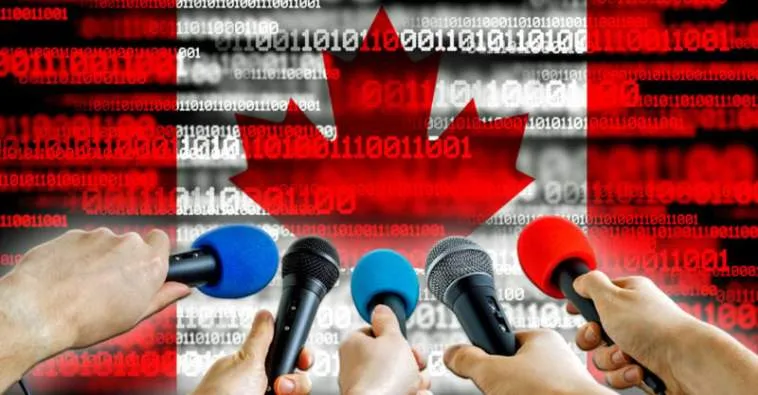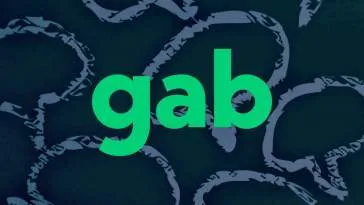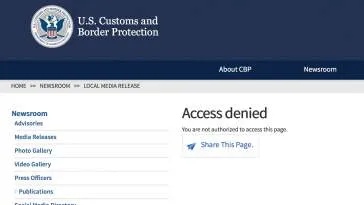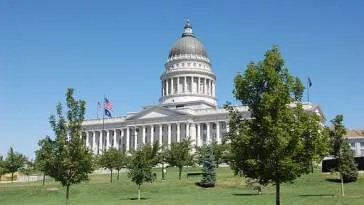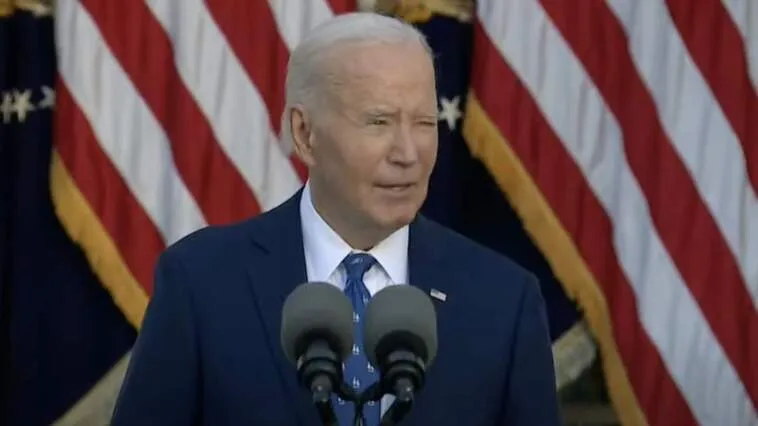(The Defender) The Canadian Radio-television and Telecommunications Commission (CRTC) last week said it will require online streaming services that offer podcasts or other broadcasting content in Canada to register with the government by Nov. 28, Public News reported.
The law applies only to those services making $10 million or more in annual revenue in Canada and the information it is requiring for registration is minimal, the CRTC said. Services must provide the Canadian government with their legal name and contact information, along with “information related to their content and subscribership.”
“You will be able to continue to listen to and watch the content of your choice, the CRTC states on its website. “Our goal is to better support Canadian and Indigenous content. We have always respected Canadians’ right to freedom of expression.”
But critics of the new rule, like University of Ottawa law professor Michael Geist, said:
“From a speech perspective, the regulator is effectively saying that a podcaster or news outlet that generates a certain threshold of revenue must register with the government, a position that runs counter to freedom of expression rights without government interference.”
“The takeaway from the decision is obvious: registration is the first step toward regulation, with the Commission already envisioning the prospect of regulating a wide range of services,” Geist wrote, adding that such regulation will likely include podcasts, news sites and other online audio and video services.
Journalist Glenn Greenwald voiced concern this past weekend in a tweet that went viral:
The Canadian government, armed with one of the world’s most repressive online censorship schemes, announces that all “online streaming services that offer podcasts” must formally register with the government to permit regulatory controls:https://t.co/wHOloLgnY2 pic.twitter.com/6noTYceVsg
— Glenn Greenwald (@ggreenwald) October 1, 2023
Public News also wrote the new rule, which extends to “individuals that host podcasts on their own websites,” meaning that:
“It will be harder to express yourself online, and digital-first outlets will be disproportionately negatively impacted. Traditional outlets will be economically reliant on the feds, and their lobby groups are already mobilizing to push the federal government for more support — so much for independent journalism.”
By increasing federal funding to the Canadian Broadcasting Corporation and setting the groundwork to regulate independent news providers, Prime Minister Justin Trudeau and his colleagues “are actively using disinformation to censor their fellow citizens in the name of stopping disinformation,” according to Public News. “They are pioneering dangerous tactics that other Western nations could pick up.”
This new order is being implemented under the purview of Canada’s C-11 law, also known as the Digital Streaming Act, passed in April by Parliament to amend the Broadcasting Act.
Advocates for the law insist it is not meant to allow for censorship of online political content. But critics caution the law, along with the registration order issued last week, is setting up a framework to do precisely that.
Greenwald underscored on Monday’s episode of his show, “System Update,” that the law must be understood within the context of:
“the very flagrant pro-censorship climate in Canada, which has repeatedly supported all sorts of legal limitations on hate speech and disinformation, as well as the increasingly authoritarian tendencies of the Trudeau government, which waged extrajudicial war on peaceful truckers who were protesting COVID mandates, including seizing their bank accounts with no due process.”
New law comes amid global crackdown on independent media and free speech
The Canadian crackdown on independent media comes amid a growing number of practices, rules and laws instituted by private and governmental actors globally that affect free speech.
New laws passed in Australia, the U.K. and the European Union also are making it easier for governments to mandate censorship on tech platforms, in the name of online safety and protecting children.
Kim Iversen and Greenwald both reported that in the U.K., Big Tech platforms and the government have launched an attack against the streaming platform Rumble, using recent allegations against comedian and political commentator Russell Brand as a pretense.
They are making threats under the purview of the new British Online Safety Bill, passed earlier this month, which empowers the British government and state officials to force internet companies to censor information on their sites.
Last week, European Commission Vice President Vera Jourova claimed that X/Twitter was the biggest source of misinformation and demanded greater censorship across a number of platforms, Public noted. “Ahead of upcoming elections, Google, TikTok, Microsoft, and Meta also have more to do to tackle disinformation,” she said.
Her statements were made in the context of a new EU law — the Digital Services Act — meant to implement “sweeping” changes that will force social media giants to implement “new policies and practices” to address accusations they “host corrosive content,” The New York Times reported.
“If the measure is successful, as officials and experts hope, its effects could extend far beyond Europe, changing company policies in the United States and elsewhere,” it noted.
In other words, the U.S. federal or state governments could not constitutionally enact a similar law that forces companies to crack down on “hate speech, disinformation and other harmful and illegal material on their sites.”
However, policies by tech firms in the U.S. can be changed by forcing companies to change their practices in response to Canadian, European and other laws.



